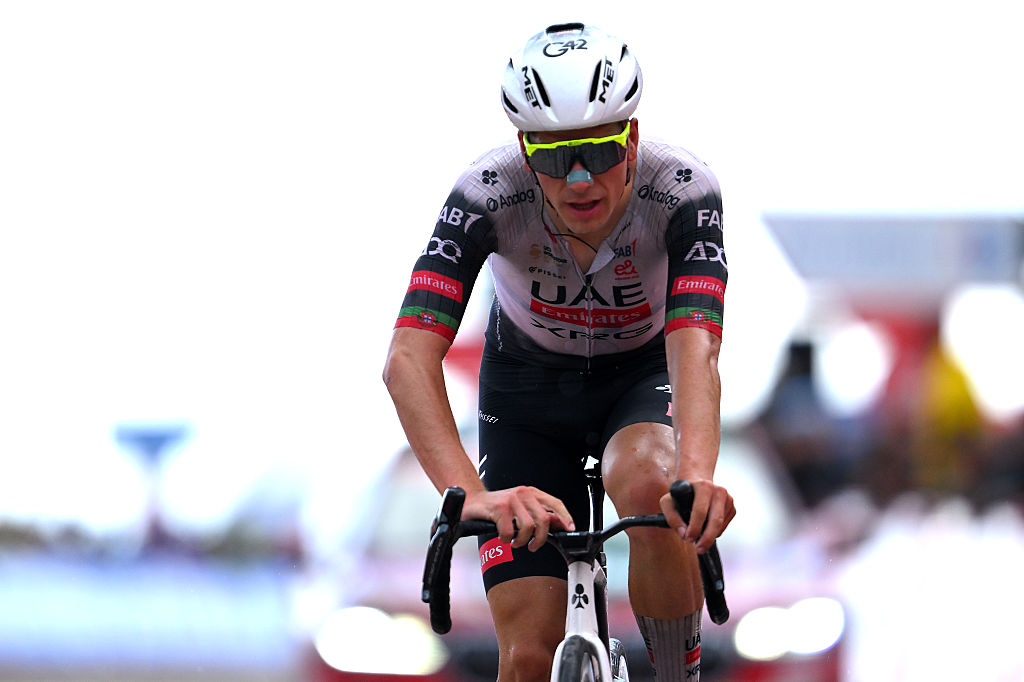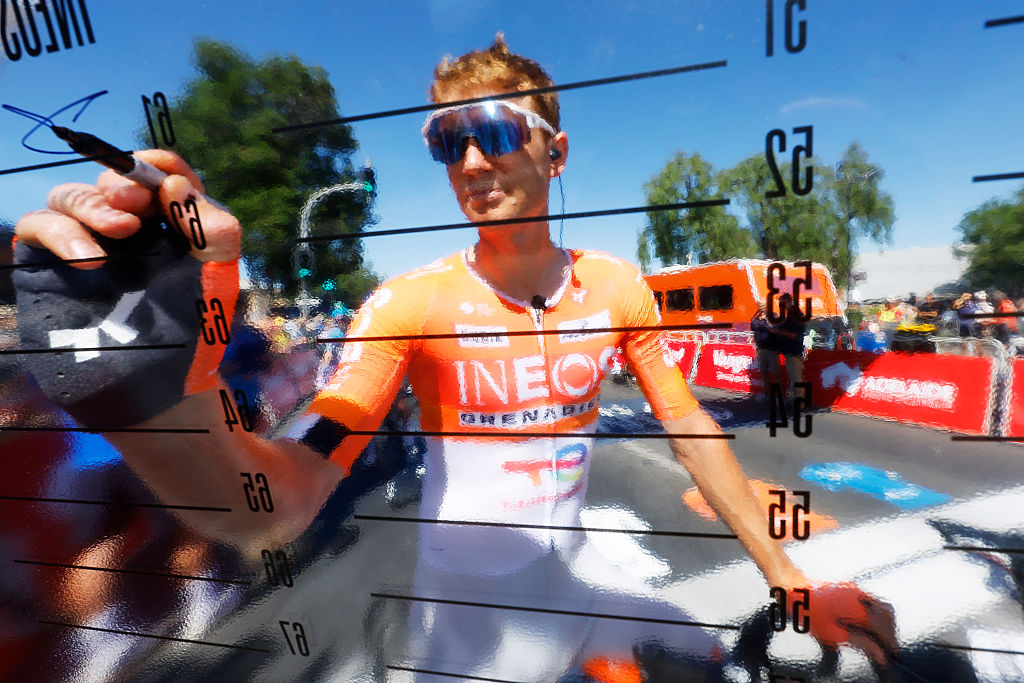'They got the surprise factor' - João Almeida forced into damage limitation mode at Vuelta a España after Jonas Vingegaard launches devastating mountain attack
Portuguese racer points to lack of team support in pursuit of Danish favourite

The latest race content, interviews, features, reviews and expert buying guides, direct to your inbox!
You are now subscribed
Your newsletter sign-up was successful
As the dust settled on Jonas Vingegaard's ferocious high mountain attack in the Vuelta a España on Sunday, arch-rival João Almeida pulled no punches about how he and his UAE Team Emirates-XRG team had been badly caught out by the Dane's unexpected GC assault on the lower slopes of Valdezcaray.
After Vingegaard shot away from a fast-crumbling GC group, Almeida was forced into serious damage limitation mode, with only Tom Pidcock (Q36.5) able to provide any degree of support.
The Portuguese and British rider managed to limit the gap to 24 seconds by the finish line, but the psychological impact of such a brutally powerful move by Vingegaard will resound through the much tougher second week stages. After all, if the Dane is capable of distancing his rivals on the relatively benign slopes of Valdezcaray, then there's no telling how much more damage he can do on the agonisingly steep ascents of the Angliru next week.
"They got a bit of the surprise factor, we were not expecting it," Almeida recognised to Eurosport.
"I was actually in a good position, but they went really hard, in the end I couldn't really close the gap. It is what it is."
In comments that bordered on the critical, Almeida pointed out that he had been forced to chase without any of his teammates to help. But despite the relatively straightforward profile of the Valdezcaray, which started steeply enough but quickly boiled down to a broad, very gradual climb of 3 or 4%, none of them were able to regain contact. Again, this does not bode well for the mountain stages to come if Ayuso finds himself on the back foot for a second time.
Referring to Pidcock and Felix Gall (Decathlon AG2R La Mondiale), the only two riders able to follow Almeida and then - in Pidcock's case - to support him, Almeida pointed out that there was only a limited degree of possible collaboration. As for his teammates, he made it clear he felt he had been isolated.
The latest race content, interviews, features, reviews and expert buying guides, direct to your inbox!
"I could see they [Pidcock and Gall] were on the limit so they couldn't do much, I maybe missed my teammates a little bit," he said.
"Nobody was with me in the end today. It is what it is."
Barring a brief stint by Jay Vine on the front immediately after Vingegaard had attacked, Almeida was certainly isolated from his teammates. By the time they crossed the line, Marc Soler was the closest UAE rider, over a minute back in the main group of favourites, Felix Großschartner was at 1:52, Vine came in nearly a quarter of an hour back, while his erstwhile GC co-leader, Juan Ayuso, lost over 21 minutes.
How important the team factor was, though, is debatable. After all, Almeida recognised that in any case, the surprise factor in Vingegaard's attack had set him on the back foot, and he was convinced that at the least, he could have stayed with the Visma-Lease a Bike leader on the climb had he not been caught unawares.
"It was not so steep so if you are on the wheel you save a lot," Almeida, now 37 seconds down on Vingegaard, agreed. "So I think could have gone with him. But we'll never know, right?"
What is definitely clear is Almeida and Pidcock may well be fast emerging as Vingegaard's key rivals, but the battle for red in Madrid is looking increasingly complicated for the Portuguese racer. Rather, after three GC stages in which UAE had been making the running in the team time trial and the Pyrenees, Vingegaard and Visma have once again regained the upper hand they held in the opening weekend - and this time, reversing the trend may well prove far more complicated a challenge.
Subscribe to Cyclingnews for unlimited access to our 2025 Vuelta a España coverage. Our team of journalists are on the ground from the Italian Gran Partida through to Madrid, bringing you breaking news, analysis, and more, from every stage of the Grand Tour as it happens. Find out more.
Alasdair Fotheringham has been reporting on cycling since 1991. He has covered every Tour de France since 1992 bar one, as well as numerous other bike races of all shapes and sizes, ranging from the Olympic Games in 2008 to the now sadly defunct Subida a Urkiola hill climb in Spain. As well as working for Cyclingnews, he has also written for The Independent, The Guardian, ProCycling, The Express and Reuters.
You must confirm your public display name before commenting
Please logout and then login again, you will then be prompted to enter your display name.

